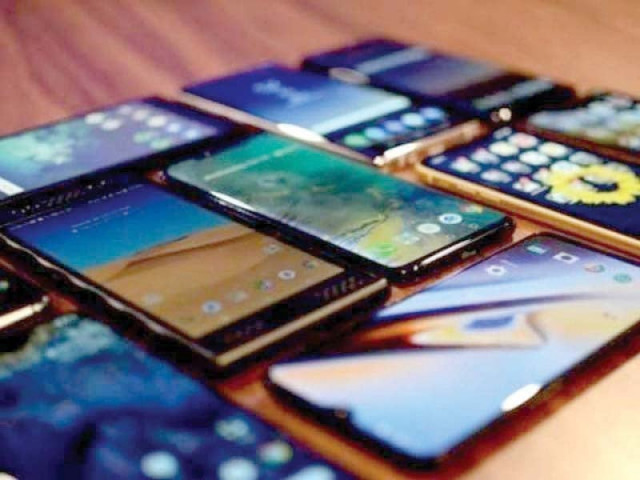Country saves $410m in phone imports
PM adviser calls Make-in-Pakistan policy a resounding success

Pakistan has saved around $410 million in foreign exchange through import substitution of cellphones, the Ministry of Commerce revealed in a statement.
In a meeting held to examine the progress made for export of locally manufactured cellphones, Adviser to Prime Minister on Commerce and Investment Abdul Razaq Dawood remarked, “the Make-in-Pakistan policy has been a resounding success.”
During July-November 2021, import of completely built units (CBUs) decreased by 73% to $179 million as compared to $661 million during the same period of previous year. “This has saved $410 million in foreign exchange.”
In contrast, import of mobile phone components for local assembly increased by 407% to $674 million from $133 million in the previous year.
“Earlier, Pakistan was a net importer of mobile phones but the situation has now been reversed and jobs are also being created in this sector,” Dawood said.
“Our vision is to make Pakistan a hub of mobile phone manufacturing and exports.”
On the occasion, the adviser was told that around 85% of Pakistan’s market was for phones priced at $200 or below. As a result of the Mobile Device Manufacturing Policy, which contains duty incentives for the local assembly of cellphones, a majority of phones cheaper than $200 are now being assembled in Pakistan.
In terms of market share, Chinese manufacturers controlled about half of the market as they were quick to utilise the incentives offered by the government, the adviser was informed.
Read Apple files lawsuit against Israeli cyber firm NSO Group
These assemblers were importing mobiles in semi-knocked down (SKD) condition, which were then assembled in Pakistan. “This is not only saving foreign exchange but also boosting industrial activity and creating employment.”
The adviser was told that the decline in imports of CBU, while the rise in imports of mobile phone components, exhibited the success of Mobile Device Manufacturing Policy, according to the statement.
Talking to The Express Tribune, Tecno Pack Electronics CEO Aamir Allawala said that the trend showed how government intervention and encouragement to an industry could quickly lead to foreign investment.
“There are three Chinese investors, Oppo, Vivo and Transsion,” he highlighted.
Besides saving foreign exchange, the industry created skilled jobs as well, he said, adding that around 50,000 jobs had so far been created in the mobile phone industry.
“By January 2022, 90% of all mobile phones sold in the country will be made in Pakistan,” he said.
Giving details, the CEO said that the global brands like Samsung, Tecno, Infinix, Oppo, Vivo, Realme, Xiaomi, Nokia and Itel would start manufacturing locally by the end of January 2022.
Currently, there were around 12 local brands including G’Five, QMobile, VgoTel, QQMee, etc which were being assembled in Pakistan.
“Our next stop is localisation of parts as per Mobile Device Manufacturing Policy,” he said. “Exports and relocation of China’s mobile phone industry to Pakistan is on the cards.”
He was of the view that consistency in policy and continued support from the government could make this industry “a game changer” and could lead to the development of a vibrant electronics sector in the country.
Read more Chinese province targets journalists, students with surveillance
“Pakistan is advancing in mobile manufacturing that is bringing us such fantastic results,” SI Global CEO Noman Ahmed Said remarked.
The market for cellphones was already well established, he said, adding that affordability and widespread availability for the public was now more achievable due to local manufacturing.
The substantial cost that is being saved in the shape of foreign exchange through local manufacturing of cellphones can be directed to the areas that need government support for development.
“All this development is coming because Pakistan has been able to produce cellphones at a lower cost,” he said.
“Pakistan is embarking on a new era of technological advancement and it brings me great joy, while working in this sector, to see the industry blossom,” he cherished.
Following in the footsteps of global tech giants, Pakistan also had the potential to become a major cellphone exporter and increase the foreign exchange reserves, he added.
Published in The Express Tribune, December 8th, 2021.
Like Business on Facebook, follow @TribuneBiz on Twitter to stay informed and join in the conversation.






1710175205-0/image-(9)1710175205-0-208x130.webp)












COMMENTS
Comments are moderated and generally will be posted if they are on-topic and not abusive.
For more information, please see our Comments FAQ